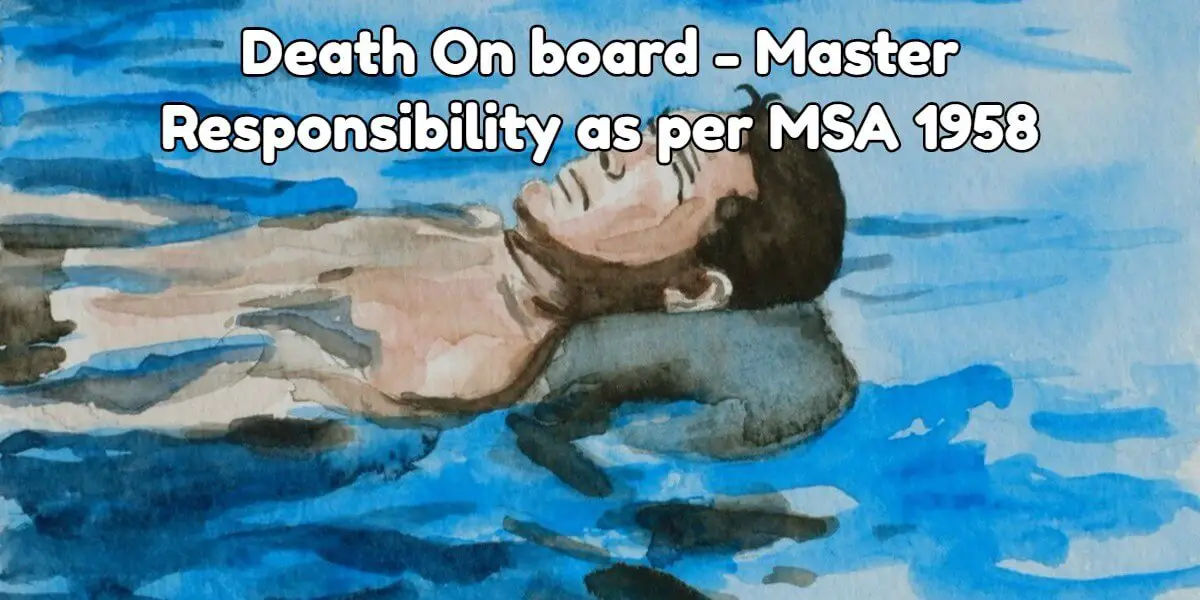What are the duties of master as regards seaman or apprentice who dies on board during a voyage and as regards dealing with his wages and property as provided in Merchant Shipping Act 1958?
When any seaman or apprentice engaged in a voyage due to terminate in India dies, the master shall inform the next of kin of the deceased and the shipping master at the seaman’s port of engagement. The master shall take charge of any money and effects of the deceased seaman on board the ship and make the following entries in the official log book:
- Details of money & other effects of the seaman or apprentice.
- A statement of wages due & any deduction from such wages.
- A statement of the death & the cause thereof.
The ships which remain at port for at least 48 hours outside India then the master must inform the Indian consular officer who may take over the property of the deceased and endorse the same on the crew agreement as well as issue a receipt to the master. On arrival of the ship in India, the master shall furnish such receipt to the shipping master within 48 hours & in other cases hand over the property of the deceased to the said ship master on compliance. The shipping master shall issue to the master of the ship a certificate to that effect.
No deductions are allowed from the wage of the deceased unless supported by an entry in the official log book & the required vouchers.

Leave a Reply